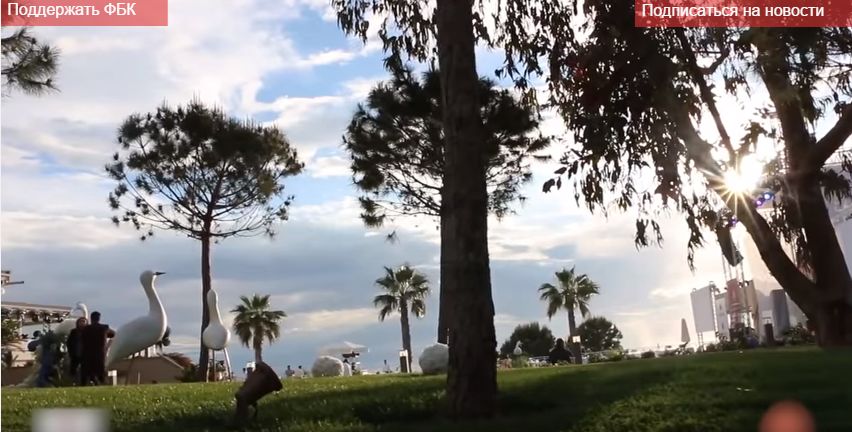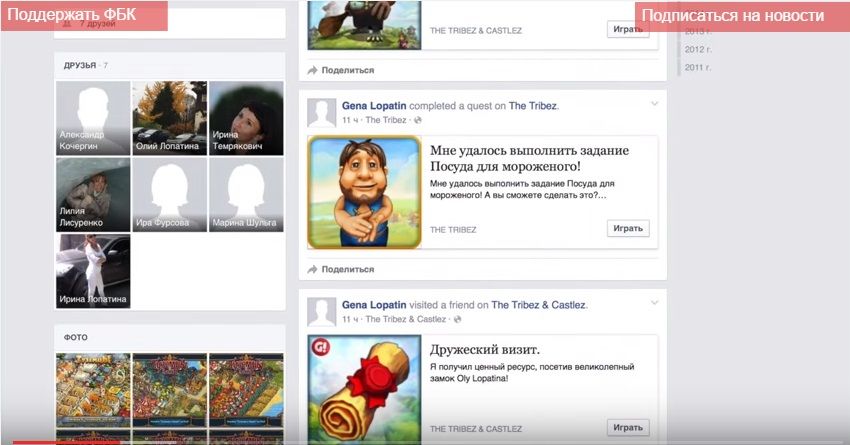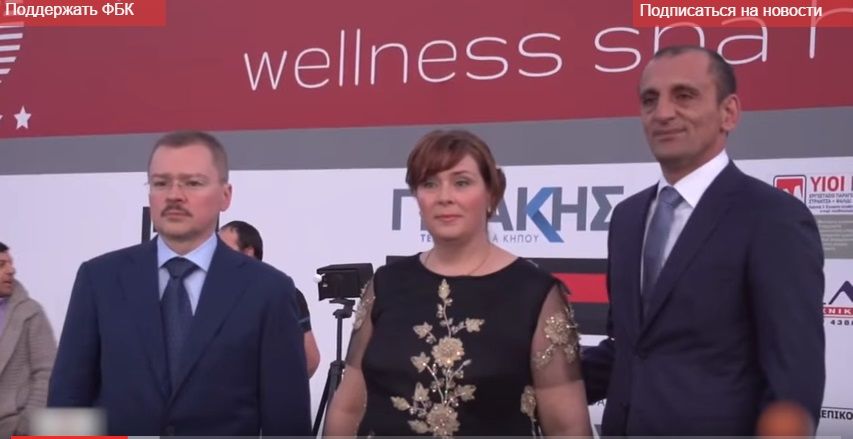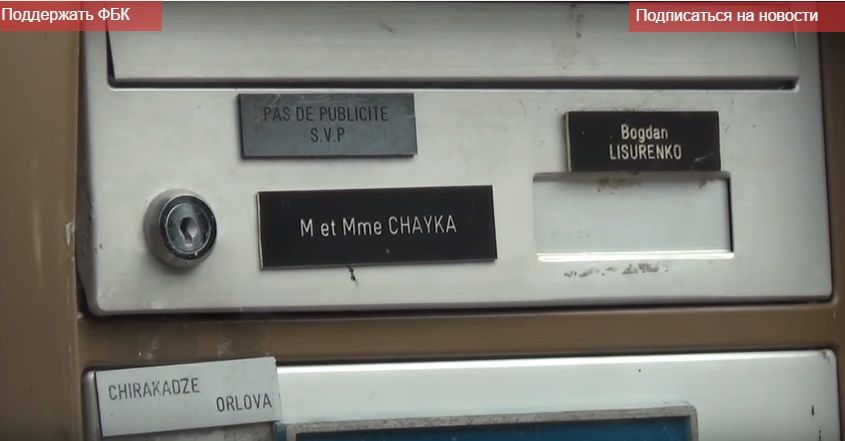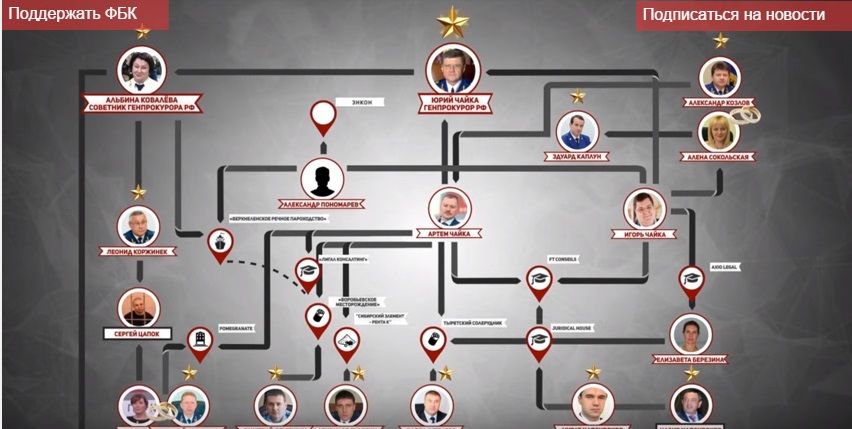An explosion has occurred at Gazprom’s Yamal gas fields, reportedly killing 4 people.
Welcome to our column, Russia Update, where we will be closely following day-to-day developments in Russia, including the Russian government’s foreign and domestic policies.
The previous issue is here.
Recent Translations:
–The Non-Hybrid War
–Kashin Explains His ‘Letter to Leaders’ on ‘Fontanka Office’
–TV Rain Interviews Volunteer Fighter Back from Donbass
–‘I Was on Active Duty’: Interview with Captured GRU Officer Aleksandrov
UPDATES BELOW
(Artyom uses the spelling Artem Chayka in Swiss legal papers.)
The investigation is likely Navalny’s most sensational and dramatic to date, and targets the relatives and colleagues of Prosecutor General Yury Chaika — one of the most powerful men in Russia — responsible for Navalny’s own court cases and those of his associates, widely believed to be fabricated in retaliation for his anti-corruption work.
As Novaya Gazeta commented, Yury Chaika is associated not only with the widespread crackdown on anti-Putin demonstrators since 2011, he has also investigated hundreds of NGOs to determine if they are “foreign agents.”
The video already has 2 million views on YouTube, and Russians are talking about it all over social media, as are Western Russia-watchers. Russian journalists are trying to follow up.
The centerpiece of the claims is a very luxurious hotel for Russian vacationers built in Greece by Artem Chayka called the Pomegranate. Promotional footage of the opening shows Russian Culture Minister Vladimir Medinsky presiding along with famous singer Philipp Kirkorov and other celebrities, and a clip of Yury Chaika himself musing about the spiritually restorative properties of his sojourns at Mount Athos — which happens to be near the hotel and a villa also purchased by Artem.
Artyom Yuryevich Chaika (Artem Chayka) is a “dollar millionaire” who made a fortune through a network of shady operations including underground casinos, cement factories and salt mines in which thousands of people have been employed and hundreds of millions of rubles have been laundered through various fake companies.
Navalny’s claim is basically that the son invoked his father’s position to threaten rivals and make raids on other companies and that his father serves as a mafia-like protector of a huge criminal network. The exact connection of Chaika, Senior to the criminal operations of his children is the most under-researched in the report, but the capers involving the sons involve a lot of documentation from local real estate and corporate records showing their own activity and that of associates as well.
Olga Lopatina, a second investor in the Pomegranate, the ostensibly former wife of federal deputy prosecutor general Gennady Lopatin (a subordinate of Yury Chaika’s) simply disappears in 2011 from his financial reports to the government, required of state officials — supposedly due to their divorce. But Navalny’s researchers spotted TV coverage of Olga still wearing her wedding ring and caught her and Gennady playing the Facebook game The Tribez together and “liking” each other’s posts, one of which shows “Gena Lopatin” visiting “the magnificent castle of Ola Lopatina.”
Georgy Alburov, Navalny’s program director notes of the Lopatins in the video (translation by The Interpreter):
“This is a kind of wide-spread scheme when an official wishing to formally get rid of a business simply divorces his wife and says ‘I’m so magnanimous, I left my wife everything, all the property, all the business and now she lives her life, I live mine, and I don’t know what’s going on with her.”
Lopatina went on to found two sugar plants, Arlain in Moscow and Sakhar Kubani in Krasnodar Territory — and it is here the tie to organized crime is discovered, as her partners are the wives of underworld bosses, Anzhela Mariya Tsapok and Natalya Tsepovyaz. Their husbands were known for terrorizing Krasnodar Territory with “hundreds of rapes and dozens of murders, raids, and bribes,” say the video producers.
Tsapok was the convicted gang leader and mastermind of a notorious massacre on Nov 4, 2010, in which 12 people were killed, including 3 children and a 9-month infant, all members of the family of a wealthy local farmer, Serever Ametov, who had somehow crossed Tsapok.
This enables social media coverage of Navalny’s video to characterize the prosecutor general of Russia as “a baby killer” — although the links to the massacre, through the wife of the perpetrator and her business partnership with the wife of a deputy prosecutor in business with Chaika’s son, Artem, are admittedly indirect. Navalny and his researchers explain how the system works, however:
“How did he [Artem Chayka] manage to control an enormous part of the business of Krasnodar Territory? How did he manage to terrorize the population? How were they left unpunished for so long? It’s all very simple; their protection was the Prosecutor General of Russia.”
A few kilometers away, researchers found a $3-million home owned by Artem Chayka, and then a law firm named FT Conseils owned by Artem and Igor Chayka, Yury’s youngest son, involving Francois Tharin, a Swiss citizen they claim is connected through the arrangement of a real estate purchase for Sergei Mikhailov of Moscow’s Solntsevo gang, and through him, to Senator Murat Khapsirokov and Nazir Khapsirokov, also implicated in Artem’s business as he manages his Swiss bank accounts. Tharin says “no comment” when Navalny’s researchers visit his office.
Then we are taken back to the roots of Chayka’s millions which started in an Irkutsk shipping business in 1998. Through complicated maneuvers to get federal subsidies and change the boards of directors of ostensibly failing businesses, Chayka is able to take over state property.
Sergei Bespalov, head of the Irkutsk chapter of the opposition Democratic Choice party explains all the local connections and the curious fact that Albina Kovalyova, a woman over 70 is the head of one company; she once had a job as “prosecutor’s representative.”
“The prosecutor is the legal market of force,” says Bespalov matter-of-factly.
There are some whistleblowers along the way but they come to bad ends. Nikolai Palyonny, the director of Upper Lena Shipping, a company targeted by Chayka, is shown in a television interview made by TVTs in December 2002 explaining that certain unscrupulous people with the protection of Artyom Chayka were artificially creating a conflict to take over local resources.
At the time he said he was trying to reach higher officials in Moscow to prevent this naked grab but was hampered by Chayka’s people; a little while later he was found hanged in his garage; no investigation was conducted. Later journalists obtained documents indicating he was strangled, and had not hanged himself. After his death, 16 of the ships were swiped by a company re-registered with a similar name on the basis of Upper Lena Shipping, at the same address as Artyom Chayka’s other companies, some were sold or given to dummy corporations; the proceeds made their way eventually into Chayka’s Swiss bank account. The rest of the ships were left to rust in harbors.
Chayka then picked up a state salt mine at a fire-sale price; Albina was put in charge of this company. The video goes on to describe other raids of salt companies in schemes where equipment would be declared insufficient or faulty for conducting business and would then be taken over.
Navalny’s team interviews local people who comment on the corrupt connections and the former director of Mostovoy Karyer, one of the firms involved, who described how one day he came to work and found — out of the blue — fallen trees blocking all the entry roads to the plant. Eventually after talking to various people who gestured “upstairs,” he found that a corrupt local prosecutor’s office was behind it. When he went to Moscow to complain, there, too, people in fear simply nodded their head in the direction of “upstairs” to explain that someone “higher-up” was covering up the case. The former director implicated Aleksandr Gulyagin, a subordinate of Yury Chaika’s in the prosecutor’s office and a friend of Artem.
The video is effective because of the nearly caricature-like nature of the main protagonists. Artem, associated with the most muscle in the allegations, sports a mustache, rides a motorcycle and runs a club called Iron Birds where Igor also takes part. Igor, a portly young man always appearing in a tailored suit with an orange-and-black striped St. George ribbon on his lapel, is shown in settings with Prime Minister Dmitry Medvedev and Russian Orthodox clergy.
Igor has built himself a contract business where he always wins the bid, such as the lucrative contract for garbage removal in Moscow, as the fix is supposedly put in by corrupt connections.
Among Igor’s projects involving his own firm and three others was an impressive skate park in Ostankino Park that had to be closed three days after it was opened due to safety concerns. The Anti-Corruption Fund found that in fact all four of these companies were related; 3 had shared an address; at one time the same company made the web pages and advertising brochures for all 4 — as well as for the Pomegranate hotel. The crooks might have gone to the trouble to make all the companies appear separate, but then are tripped up on a simple detail like their web designer.
At one point Igor’s company is able to buy shares of a concrete company that belonged to Russian Railways in a fixed auction. A lawyer in Navalny’s organization was able to establish that the participants in the auction in fact were affiliated with each other.
Among the more colorful scenes in the video is when TV Rain tried to interview Igor at a ceremony sponsoring a philharmonic orchestra, and asked him what percentage of his own investment was in the project.
“Don’t be modest,” said the reporter. “I will be modest,” replies Igor. “I’m a Russian Orthodox believer. And you must be humble.” The reporter persists, trying to get him to talk about his brother’s business, but he complains that the reporter began by asking about Tchaikovsky and now was probing into his family’s business. “Ask my brother,” he insisted several times — although he is in his brother’s corporations and should know about their operations.
Navalny’s video cuts to Igor getting into his “humble” helicopter and a reporter trying to get one of his security men to introduce himself, who is turned away. “You’re breaking the law!” the reporter cries in frustration after the beefy guard.
“F**k the law,” says the guard and the camera follows a cortège of black cars riding away.
Navalny also makes the claim that the two Chaika brothers organized an infamous illegal casino racket with prosecutors Edward Kalugin and Aleksandr Kozlov through the regional official Alyona Sokolskaya.
At the end, all the findings are tied together in one grand organizational tree with Yury Chaika at the top — who was allegedly responsible for closing any cases that any more honest prosecutors would have opened to look into some of these shocking coincidences and overlaps with known crime families.
Navalny then concludes:
“We have gone beyond the bounds of our usual anti-corruption investigation because there isn’t just corruption here, there is robbery, murder, racketeering. This system is unpunishable because it is built by those who should be punishing.”
He believes so many people are involved in these schemes that the top leadership “can’t help but know” about Chaika’s corruption and “must have a fat file of compromising material” on him. But it may be that he is fulfilling orders.
Presidential spokesman Dmitry Peskov quickly blew off Navalny’s video, saying he was “unaware” of it, RFE/RL reported.
Yury Chaika himself said angrily to the press that it was a “hatchet job” evidently “carried out not at the expense of those who prepared it. Big money!”, implying some outside force paid Navalny and his team to produce it. “The statements are deliberately deceitful and are completely unsubstantiated,” he said, according to Moscow Times. He also hinted that he would reveal who was behind Navalny’s report.
Navalny raises funds to support his organization inside Russia and is not known to receive foreign grants.
Moscow Times reported that Navalny calmly responded that he would counter-sue Chaika for libel implying he was funded by outsiders to smear officials instead of legitimating raising questions about obvious corrupt ties. Today, Navalny’s lawyer said on his Facebook page that a suit “to defend our business reputation” was filed in court.
A key claim of the video is that Swiss authorities were already investigating some of this apparent criminal activity, but in fact the Office of the Attorney General of Switzerland denied to RFE/RL that any criminal proceedings were underway against any of the people mentioned, including Artem Chayka, Yury Chaika’s son, who had established residence in Switzerland.
Lopatina also replied to the allegations through the local prosecutor general’s office, saying the extracts of documents from business registration data bases produced “bewilderment.” She said she is preparing a libel lawsuit now and indicated that Artem Chayka was also looking at suing, although this wasn’t confirmed.
A funny footnote to this story is that it was Yury Chaika, in a letter earlier this year to the Investigative Committee head Aleksandr Bastrykin, who complained that the case against Navalny’s staff person Georgy Alburov for “art theft” — widely seen as contrived to harass Navalny and his colleagues — was too thin and should be dropped. The “theft” had considered of taking a poster off a fence made by a street artist who didn’t mind it was taken. Alburov found the letter about his case had accidentally been left in his court file when he faced trial.
Translation: @alburov Ha, how Yury Yakovlevich [Chaika]and Aleksandrovich Ivanovich [Bastrykin] quarreled. Pure Gogol.
Bastrykin prevailed and Alburov was handed a sentence of one month’s community service.
It remains to be seen how the epic tale of the Chaika family, worthy of a treatment like Gogol’s Dead Souls will ever be investigated properly; such an investigation is not likely to come from the very people implicated, and that means the job is left to the considerably weakened independent press in Russia.
One figure who isn’t a friend of Navalny’s but staunchly loyal to President Vladimir Putin is the popular singer Iosif Kobzon, also a member of parliament, who said he was “saddened” by the allegations and “if true” Chaika should resign. He called for an investigation of the claims, Novaya Gazeta reported.
RBC.ru reached Natalya Tsepovyaz, wife of Vyacheslav Tsepovyaz who is serving a 20-year sentence for murder, one of the partners in the sugar company in which Artem Chayka’s business parter was also discovered.
She said “such a firm may have been organized but it didn’t exist…it didn’t operate.” Asked whether she had been made a founder of the corporation without her knowledge, she said “Generally, yes,” saying her husband took care of all the business decisions and she was not acquainted with either Lopatina or Staroverova.
Kommersant said Sakhar Kubani, whose name means “Kuban Sugar” and refers to the Kuban region of Russia may have been created to implement a major regional 8.4 billion ruble ($123.5 million) investment project in which Rosselkhozbank, an agricultural investor was interested. But Vladimir Khanbekov, head of the Kushchyovsky District where the project was supposed to start said he wasn’t aware of any involvement by the sugar company.
Rosselkhozbank had no comment by press time; Kommersant found that in 2010, an inspection of the Krasnodar branch of Rosselkhozbank showed a contract between Sakhar Kubani and Nikolai Dyachenko of the bank’s local branch, which led to the breaking of the contract, the liquidation of the company, and five years of jail for Dyachenko for misuse of loan funds.
Lopatina reiterated to RBC in a statement that she had nothing to do with the Tsapok gang or the other partners in the sugar company.
But RBC found that Lopatina had still more businesses — Chernomorskaya [Black Sea], an investment firm, and Bashnya [Tower], a construction company — registered showing Nadezhda Staroverova, the wife of the prosecutor’s office manager Aleksei Staroverov, as her partner. Both companies show Aleksei Borodin as head; he had no comment. A previous investor in the company was Yury Gritsenko, deputy governor of Krasnodar Territory.
Novaya also sent a formal query to the Prosecutor’s Office, but only got back a form letter from the press officer, Marina Gridneva, saying that all information about the incomes and properties of employees of the prosecutor’s office are “reliably checked” and published in their annual declarations. But under Russian law, Gridneva explained, there is no requirement for oversight nor publication of information about the assets of relatives of employees of the prosecutor’s office.
— Catherine A. Fitzpatrick
Sever-Pressa, a local media site, first reported 1 person killed and 4 injured. Then RIA Novosti said 3 people were killed and 2 injured. TASS is currently reporting 4 killed.
The differences may be due to the fact that the injured persons were unable to be medically evacuated immediately. The remote area can only be reached by air. An emergency helicopter was set to take off at 17:00 Moscow time but for some reason did not leave right away.
— Catherine A. Fitzpatrick
